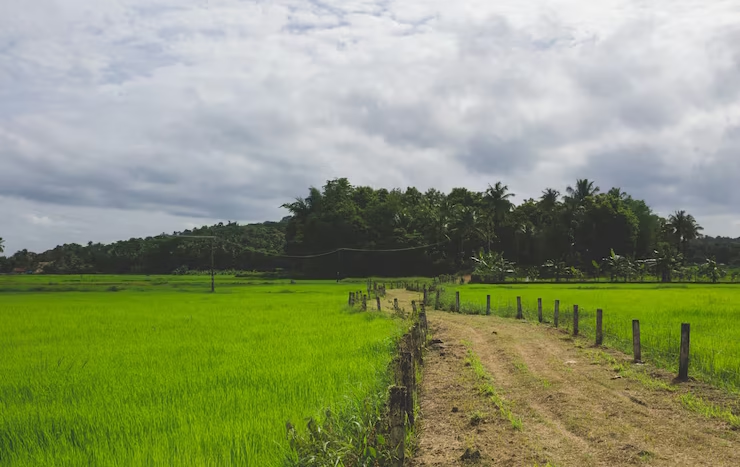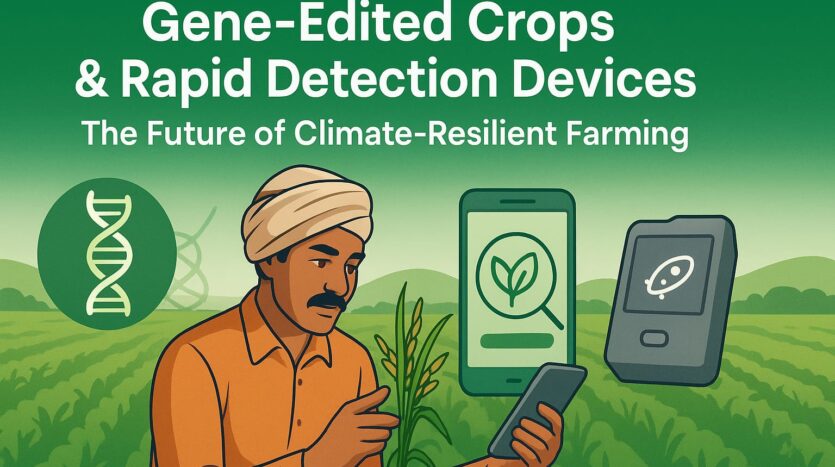Gene-Edited Crops & Rapid Detection Devices: The Future of Climate-Resilient Farming India
Indian agriculture is entering a transformative phase where science and technology are becoming the backbone of farming. With climate change bringing frequent floods, droughts, and unpredictable weather patterns, farmers need innovative solutions that go beyond traditional practices. One of the most promising developments is the rise of agricultural biotechnology and gene-editing technologies such as CRISPR, combined with rapid pathogen detection devices.
🌱 What Are Gene-Edited Crops?
Gene-editing is a scientific process that allows researchers to precisely modify a plant’s DNA. Unlike genetically modified organisms (GMOs), which involve inserting foreign genes, gene-editing simply makes targeted improvements in the crop’s existing DNA.
Example: The Swarna-Sub1 rice variety has been gene-edited to survive flash floods, helping farmers in flood-prone regions.
Other Innovations: Lodging-resistant crops (crops that do not fall easily during heavy rains or winds).
🔬 Rapid Pathogen Detection Devices
Alongside crop improvements, biotechnology is also offering tools to fight pests and diseases at an early stage.
Mobile-based devices can now detect harmful pathogens in soil or leaves within minutes.
Farmers can take quick action before the infection spreads, reducing yield losses.
🌍 Why This Matters for India (and Telangana Context)
Flood-prone areas like parts of Nalgonda and Palamuru in Telangana can benefit from flood-resilient rice varieties.
Smallholder farmers who often lose crops due to late detection of pests/diseases can protect their fields with portable detection kits.
This technology reduces dependency on chemical pesticides, cutting down costs and improving soil health.
🚀 The Bigger Picture
With the Government of India encouraging research in climate-smart agriculture, gene-edited crops and biotech tools are expected to expand rapidly in the next 5 years. Farmers who adopt these technologies early will enjoy higher productivity, lower risks, and greater resilience against climate shocks.
Conclusion
Biotechnology and gene-editing are no longer distant concepts—they are becoming real tools in the hands of Indian farmers. From flood-resistant rice to instant pest detection devices, these innovations are setting the stage for a more sustainable and secure future in agriculture.
👉 What do you think? Would you adopt a gene-edited crop if it could save your farm from floods or pests? Share your thoughts in the comments below!





